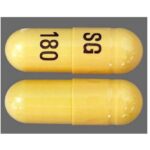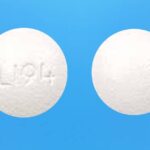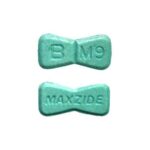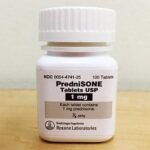How to Reduce Lamotrigine Side Effects and Prevent Interactions
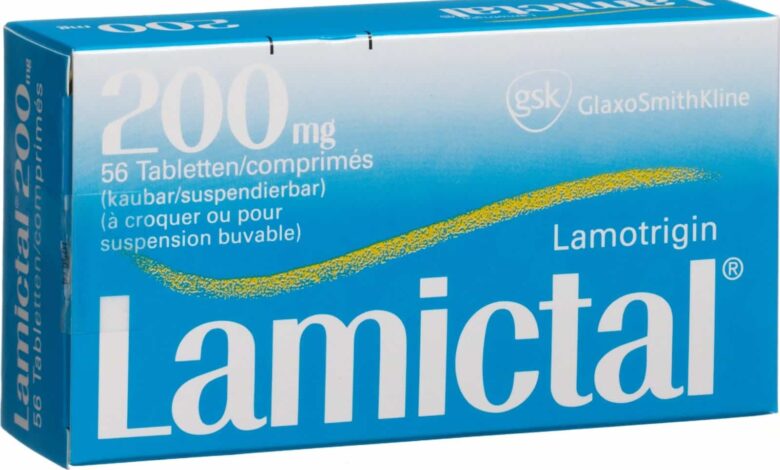
Lamotrigine extended-release (long-acting) tablets are used with other medications to treat certain types of seizures in patients who have epilepsy. All types of lamotrigine tablets (tablets, orally disintegrating tablets, and chewable tablets) other than the extended-release tablets are used alone or with other medications to treat seizures in people who have epilepsy or Lennox-Gastaut syndrome (a disorder that causes seizures and often causes developmental delays).
All types of lamotrigine tablets other than the extended-release tablets are also used to increase the time between episodes of depression, mania (frenzied or abnormally excited mood), and other abnormal moods in patients with bipolar I disorder (manic-depressive disorder; a disease that causes episodes of depression, episodes of mania, and other abnormal moods).
Lamotrigine has not been shown to be effective when people experience the actual episodes of depression or mania, so other medications must be used to help people recover from these episodes. Lamotrigine is in a class of medications called anticonvulsants. It works by decreasing abnormal electrical activity in the brain.
Lamotrigine is available as the brand-name drugs Lamictal, Lamictal XR (extended-release), Lamictal CD (chewable), and Lamictal ODT (dissolves on the tongue).
It’s also available as generic drugs. Generic drugs usually cost less than brand-name versions. In some cases, they may not be available in every strength or form as the brand-name drugs.
How should I take Lamotrigine?
Lamotrigine comes as a tablet, an extended-release tablet, an orally disintegrating tablet (dissolves in the mouth and can be swallowed without water), and a chewable dispersible (can be chewed or dissolved in liquid) tablet to take by mouth with or without food. The extended-release tablets are taken once a day. The tablets, orally disintegrating tablets, and chewable dispersible tablets are usually taken once or twice a day, but may be taken once every other day at the beginning of treatment. Follow the directions on your prescription label carefully and ask your doctor or pharmacist to explain any part you do not understand.
There are other medications that have names similar to the brand name for lamotrigine. You should be sure that you receive lamotrigine and not one of the similar medications each time you fill your prescription. Be sure that the prescription your doctor gives you is clear and easy to read. Talk to your pharmacist to be sure that you are given lamotrigine. After you receive your medication, compare the tablets to the pictures in the manufacturer’s patient information sheet. If you think you were given the wrong medication, talk to your pharmacist. Do not take any medication unless you are certain it is the medication that your doctor prescribed.
Swallow the tablets and extended-release tablets whole; do not split, chew, or crush them.
If you are taking the chewable dispersible tablets, you may swallow them whole, chew them, or dissolve them in liquid. If you chew the tablets, drink a small amount of water or diluted fruit juice afterward to wash down the medication. To dissolve the tablets in liquid, place 1 teaspoon (5 mL) of water or diluted fruit juice in a glass. Place the tablet in the liquid and wait 1 minute to allow it to dissolve. Then swirl the liquid and drink all of it immediately. Do not try to divide a single tablet to be used for more than one dose.
To take an orally disintegrating tablet, place it on your tongue and move it around in your mouth. Wait a short time for the tablet to dissolve, and then swallow it with or without water.
If your medication comes in a blisterpack, check the blisterpack before you take your first dose. Do not use any of the medication from the pack if any of the blisters are torn, broken, or do not contain tablets.
If you were taking another medication to treat seizures and are switching to lamotrigine, your doctor will gradually decrease your dose of the other medication and gradually increase your dose of lamotrigine. Follow these directions carefully and ask your doctor or pharmacist if you have questions about how much of each medication you should take.
Lamotrigine may control your condition, but it will not cure it. It may take several weeks for you to feel the full benefit of lamotrigine. Continue to take lamotrigine even if you feel well. Do not stop taking lamotrigine without talking to your doctor, even if you experience side effects such as unusual changes in behavior or mood. Your doctor will probably decrease your dose gradually. If you suddenly stop taking lamotrigine, you may experience seizures. If you do stop taking lamotrigine for any reason, do not start taking it again without talking to your doctor.
What are the side effects of Lamotrigine?
Lamotrigine oral tablet may cause drowsiness. Do not drive, use heavy machinery, or do other dangerous activities until you know how this drug affects you.
Lamotrigine can also cause other side effects.
More common side effects
The more common side effects that can occur with use of lamotrigine include:
- dizziness
- drowsiness
- headache
- double vision
- blurred vision
- nausea and vomiting
- diarrhea
- stomach pain
- trouble with balance and coordination
- trouble sleeping
- back pain
- stuffy nose
- sore throat
- dry mouth
- fever
- rash
- tremor
- anxiety.
If these effects are mild, they may go away within a few days or a couple of weeks. If they’re more severe or don’t go away, talk with your doctor or pharmacist.
Serious side effects
Call your doctor right away if you have serious side effects. Call 911 if your symptoms feel life threatening or if you think you’re having a medical emergency. Serious side effects and their symptoms can include the following:
- Serious skin rashes called Stevens-Johnson syndrome and toxic epidermal necrolysis. Symptoms can include:
- blistering or peeling of your skin
- hives
- rash
- painful sores in your mouth or around your eyes
- Multi-organ hypersensitivity, which is also called drug reaction with eosinophilia and systemic symptoms (DRESS). Symptoms can include:
- fever
- rash
- swollen lymph glands
- severe muscle pain
- frequent infections
- swelling of your face, eyes, lips, or tongue
- unusual bruising or bleeding
- weakness or tiredness
- yellowing of your skin or the white part of your eyes
- Low blood cell counts. Symptoms can include:
- tiredness
- weakness
- frequent infections or an infection that won’t go away
- unexplained bruising
- nosebleeds
- bleeding from the gums
- Changes in mood or behavior. Symptoms can include:
- thoughts about killing yourself
- attempts to harm or kill yourself
- depression or anxiety that’s new or gets worse
- restlessness
- panic attacks
- trouble sleeping
- anger
- aggressive or violent behavior
- crankiness that’s new or gets worse
- dangerous behavior or impulses
- extreme increase in activity and talking
- Aseptic meningitis (inflammation of the membrane that covers your brain and spinal cord). Symptoms can include:
- headache
- fever
- nausea and vomiting
- stiff neck
- rash
- being more sensitive to light than usual
- muscle pains
- chills
- confusion
- drowsiness
- Hemophagocytic lymphohistiocytosis (HLH, a life threatening immune system reaction). Symptoms can include:
- high fever, typically over 101°F
- rash
- enlarged lymph nodes
- Irregular heart rhythm. Symptoms can include:
- a fast, slow, or pounding heartbeat
- shortness of breath
- chest pain
- feeling lightheaded.
How to Reduce Lamotrigine Side Effects and Prevent Interactions
- tell your doctor and pharmacist if you are allergic to lamotrigine, any other medications. or any of the ingredients in the type of lamotrigine tablets you will be taking. Ask your doctor or pharmacist or check the Medication Guide for a list of the ingredients.
- tell your doctor and pharmacist what prescription and nonprescription medications, vitamins, nutritional supplements, and herbal products you are taking or plan to take such as atazanavir with ritonavir (Reyataz with Norvir); disopyramide (Norpace); lopinavir with ritonavir (Kaletra); methotrexate (Rasuvo, Trexall, Trexup); other medications for seizures such as carbamazepine (Epitol, Tegretol, others), oxcarbazepine (Oxtellar XR, Trileptal), phenobarbital (Luminal, Solfoton), phenytoin (Dilantin, Phenytek), and primidone (Mysoline); procainamide; pyrimethamine (Daraprim); quinidine (in Nuedexta); rifampin (Rifadin, Rimactane, in Rifamate, Rifater); and trimethoprim (Primsol, in Bactrim, Septra). Your doctor may need to change the doses of your medications or monitor you carefully for side effects.
- tell your doctor if you are using female hormonal medications such as hormonal contraceptives (birth control pills, patches, rings, injections, implants, or intrauterine devices), or hormone replacement therapy (HRT). Talk to your doctor before you start or stop taking any of these medications while you are taking lamotrigine. If you are taking a female hormonal medication, tell your doctor if you have any bleeding between expected menstrual periods.
- tell your doctor if you have or have ever had an autoimmune disease (condition in which the body attacks its own organs, causing swelling and loss of function) such as lupus (condition in which the body attacks many different organs causing a variety of symptoms); a blood disorder; depression, mood problem, or suicidal thoughts or actions; heart failure, irregular heart rhythms, or other types of heart disease; or kidney or liver disease, or ascites (swelling of the stomach caused by liver disease).
- tell your doctor if you are pregnant or plan to become pregnant. If you become pregnant while taking lamotrigine, call your doctor.
- tell your doctor if you are breast-feeding. If you breast-feed during your treatment with lamotrigine, your baby may receive some lamotrigine in breast milk. Watch your baby closely for unusual sleepiness, interrupted breathing, or poor sucking.
- you should know that this medication may make you drowsy or dizzy. Do not drive a car or operate machinery until you know how this medication affects you.
- you should know that your mental health may change in unexpected ways and you may become suicidal (thinking about harming or killing yourself or planning or trying to do so) while you are taking lamotrigine for the treatment of epilepsy, mental illness, or other conditions. A small number of adults and children 5 years of age and older (about 1 in 500 people) who took anticonvulsants such as lamotrigine to treat various conditions during clinical studies became suicidal during their treatment. Some of these people developed suicidal thoughts and behavior as early as one week after they started taking the medication. There is a risk that you may experience changes in your mental health if you take an anticonvulsant medication such as lamotrigine, but there may also be a risk that you will experience changes in your mental health if your condition is not treated. You and your doctor will decide whether the risks of taking an anticonvulsant medication are greater than the risks of not taking the medication. You, your family, or your caregiver should call your doctor right away if you experience any of the following symptoms: panic attacks; agitation or restlessness; new or worsening irritability, anxiety, or depression; acting on dangerous impulses; difficulty falling or staying asleep; aggressive, angry, or violent behavior; mania (frenzied, abnormally excited mood); talking or thinking about wanting to hurt yourself or end your life; withdrawing from friends and family; preoccupation with death and dying; giving away prized possessions; or any other unusual changes in behavior or mood. Be sure that your family or caregiver knows which symptoms may be serious so they can call the doctor if you are unable to seek treatment on your own.

